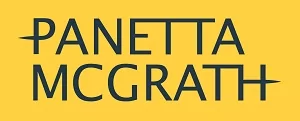The Social, Community, Home Care and Disability Service Industry Award 2010 (SCHADS Award) outlines the base employment conditions for a number of important care industries across Australia.
In this article, we provide a brief summary of the potential changes coming out of the 4-yearly review of the SCHADS Award, with a focus on a number of key proposals that may affect work practices in the future.
Reform areas
Due to the volume of substantive claims by employee and employer representatives as part of the review, the Full Bench of the Fair Work Commission (FWCFB) dealt with the claims in two tranches. The first tranche of claims addressing overtime, weekend and public holiday rates for casuals was granted by the FWCFB in a decision on 21 October 2019, coming into effect on 1 July 2020.
The second tranche of claims was dealt with by the FWCFB in a decision on 4 May 2021 (Decision). Those claims concerned:
- Minimum engagements;
- Broken shifts;
- Travel time;
- Variations to rosters;
- Remote response work/recall to work overtime away from the workplace;
- Client cancellation;
- Clothing and equipment;
- 24-hour care;
- Sleepovers;
- Telephone allowance; and
- Community language allowance.
As part of the Decision, the FWCFB provided a draft Determination for comment, setting out the proposed variations to the SCHADS Award based on the FWCFB's acceptance of some claims and the provisional views expressed by the FWCFB about others, some of which we delve into below.
Minimum engagement
The proposed change to minimum engagement would now include part-time employees as well as casuals. Further, the reference to 'all other employees' under clause 10.4(c) of the Award will now include home care employees, with those a minimum engagement requirement of 2-hours for those employees. Currently, home-care casual employees are entitled to a minimum engagement of 1 hour.
Broken shifts and broken shift allowance
Clause 25.6 will be amended to clarify that a "broken shift" is a shift constating of 2 separate periods of work, with a single unpaid "break" (other than a meal break).
The broken shift allowance is proposed to be calculated as a percentage of the "standard rate" (being the minimum wage for a Social and community services employee, level 3 at pay point 3), rather than with reference to ordinary rates plus applicable penalty and shift allowances as follows:
- an employee working a broken shift with 1 unpaid break would receive a broken shift allowance of 1.7% of the standard rate per broken shift.
- an employee who works a broken shift with 2 unpaid breaks would receive an allowance of 2.5% of the standard rate per broken shift.
Remote response/recall to work
The FWCFB considers it is necessary to introduce an Award term dealing with remote response work. A draft clause has not been included in the draft Determination. Instead, the FWCFB made the following observations and will convene a conference to discuss the issues relating to payment for remote response work, as well as the other matters set out below:
- a shorter minimum payment should apply where an employee is being paid an "on-call" allowance;
- the term should ensure that each discrete activity (such as a phone call) did not automatically trigger a separate minimum payment;
- a definition of "remote response work" or "remote response duties" should be inserted into the SCHADS Award; and
- that the term should include a mechanism to ensure that an employee's time spent working remotely is recorded and communicated to their employer.
Some of the noted changes above would likely result in changes to rostering practices and the way work is organised.
Next steps
A Hearing is listed for 30 June 2021, where interested parties will be provided an opportunity to make oral submissions in response to evidence received relating to the draft Determination and the provisional views set out in the Decision.
Interested parties are encouraged to file submissions and evidence in respect of the Decision, including the draft Determination, by 22 June 2021.
Additionally, a Conference will be convened on 27 May 2021 to discuss the claims relating to travel time, remote response/recall to work and clothing and equipment.
Panetta McGrath Lawyers will provide a further update on the SCHADS Award in the new financial year or as further developments come to light.
The content of this article is intended to provide a general guide to the subject matter. Specialist advice should be sought about your specific circumstances.

